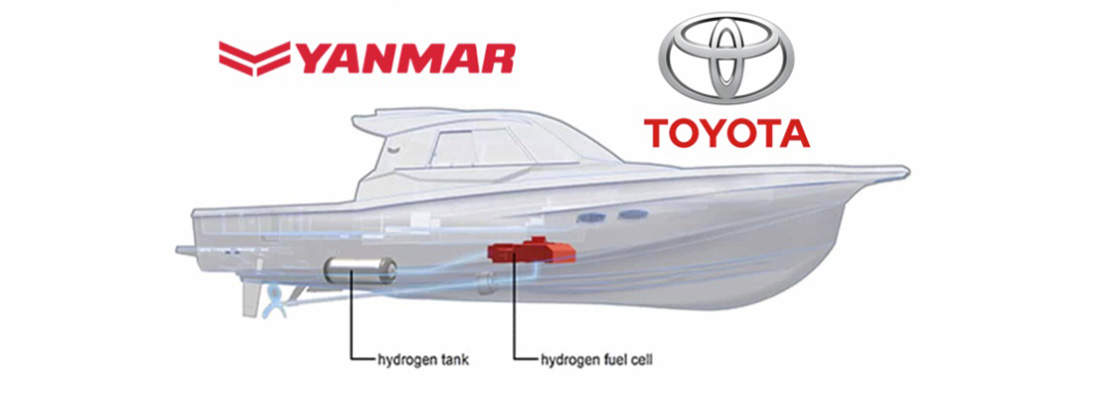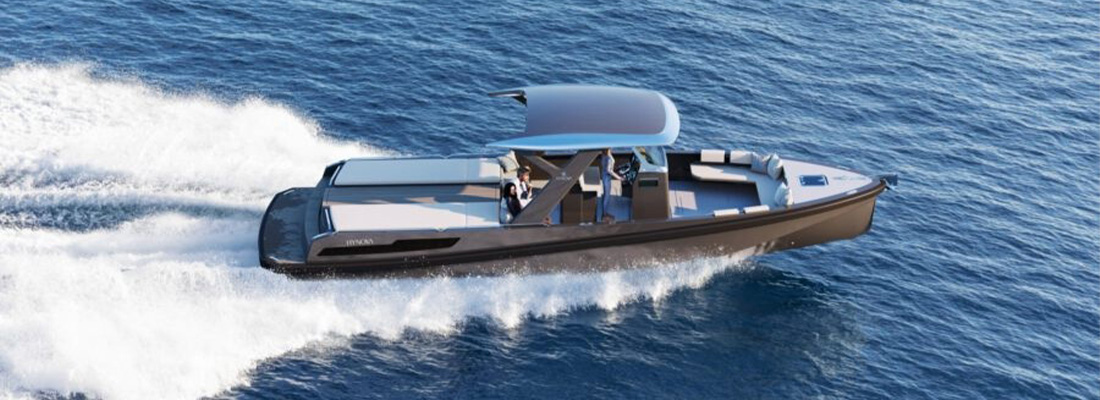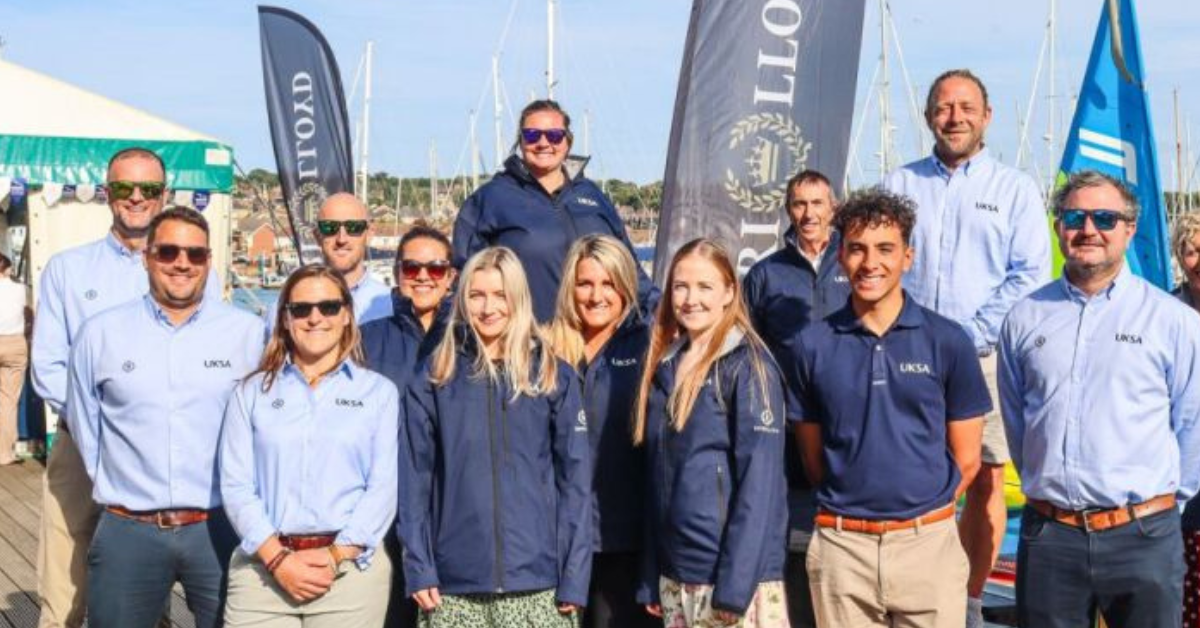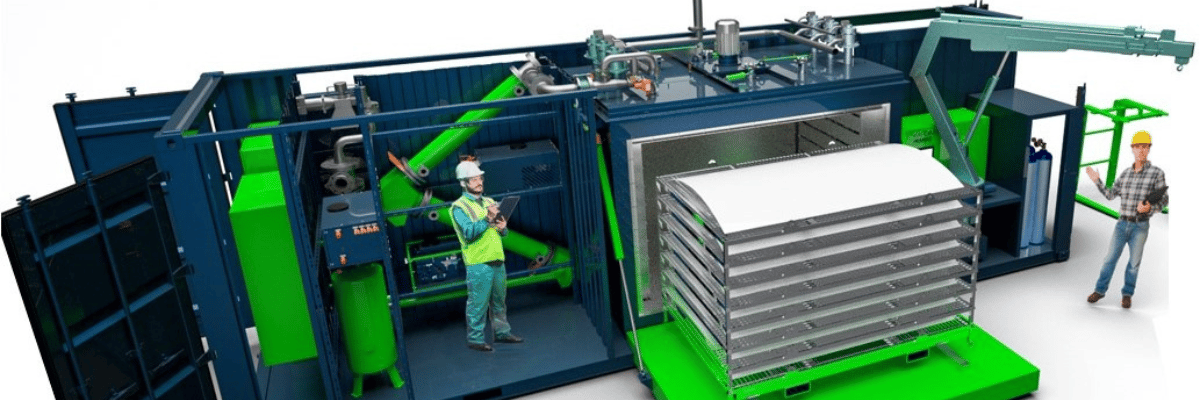Are hydrogen powered recreational boats coming soon?
 Peter Franklin
Peter Franklin
During the sustainability panel discussions at last year’s METSTRADE, the developing scenario around hydrogen fuel cell propulsion was a topic that created quite some interest. Not surprisingly, being a relatively new and emerging technology there was some difference of opinion on its suitability, its safety and space consuming aspects, and how practically achievable it might be to adopt as a propulsion option for leisure craft in the foreseeable future. The overall balance of opinion at the end of the session, was that the concept would probably become a realistic commercial proposition for recreational craft within 3 to 5 years.
However, already it seems that the switch to hydrogen will gather pace quite rapidly, both on land and on water, and a new alternative to all-electric mobility, with its dependence on large banks of batteries is already emerging. According to some evidence it seems that Li-ion batteries have their own fairly significant negative effects on the environment, both in the mineral mining and production phases, but also due to the lack of end-of-life solutions currently available for them.
European Union prioritising hydrogen in its sustainability goals
In July this year the EU Commission published its communication entitled, ‘A hydrogen strategy for a climate-neutral Europe.’ The document states, that hydrogen is essential to support the EU’s commitment to reach carbon neutrality by 2050, and for the global effort to implement the Paris Agreement while working towards zero pollution.
Hydrogen currently represents less than 2% of Europe’s energy mix, but is projected to grow to 13-14% by the year 2050. A major part of the EU’s development strategy is to attract investment in electrolysers which can produce high volumes of renewable hydrogen. These work by separating water into its two primary elements—hydrogen (H2) and oxygen (O2). This process, known as electrolysis, passes an electrical current through the water to extract hydrogen. The electricity can be sourced from clean, renewable energy such as wind, solar, or hydro.
An encouraging sign according to the report, is the increase in planned global electrolyser investments which are slated to produce 8,2 GW of clean energy by 2030, 57% of which will be in Europe.
Yanmar and Energy Observer, setting the pace for hydrogen powered boating
So, with such a top-down focus on the next generation of clean energy, and with some cars, buses, trains, and even a few commercial vessels already running on hydrogen, it should come as no surprise that Yanmar, one of the most prominent marine engine manufacturers, have embarked on a project to develop a hydrogen fuel cell system for marine applications, which they say will ultimately be suitable for leisure craft.

The system will be based on fuel cell technology currently being employed in automobiles, and to help kick start the project, Yanmar have signed an agreement with Toyota Motor Corporation. This will give them access to some key system components, including the special high-pressure hydrogen tanks built into the MIRAI, a hydrogen powered car already available from the Toyota range. According to their technical information on the vehicle, the patented tank design has been engineered using a unique carbon fibre weave construction. This apparently optimises the weight to storage ratio, which is probably a critical feature towards making the system suitable for smaller recreational boats.
Sailing around the world to make hydrogen power a working solution
Last year I was fortunate enough to be invited onboard the Energy Observer vessel in Amsterdam during a stopover in her world tour. Afterwards I wrote; ‘imagine a 32 metre floating twin hulled smart grid, utilising a combination of solar, hydrogen and fuel cell technology for propulsion, and all of her on board power requirements.’
‘The Energy Observer is a global cruising experimental laboratory, designed and operated with the ultimate goal of total zero emission energy autonomy. She is the first vessel utilising hydrogen power to travel around the world, emitting no greenhouse gases, fine particles or noise.’
The rest of the article can be viewed here:
'The World's First Hydrogen Boat in the World Visits Amsterdam
In the 18 months since that visit, the team behind the Energy Observer have worked consistently to take their project to the next level. In fact, they have now launched a fully developed, hydrogen fuel cell propulsion unit named the REXH2 (Range Extender Hydrogen,) under the brand name EODev, and based on the latest generation Toyota T-Module concept.
So, as they indicated to me when I was onboard, they have now taken the expertise and knowledge gained from their world cruising experiment, and produced a marketable hydrogen propulsion package; one that can be installed into a recreational boat, and has been tested in real life-at-sea conditions over more than 7000 nautical miles.
In fact, such a boat is all ready to be presented to the boating public and press, in the form of the HYNOVA 40; a French built 12 metre open boat described as a ‘hydrogen/electric tender or day boat’, destined to be the first ever production series electro-hydrogen powered boat built specifically for leisure purposes.

EODev have summarised as follows, the advantages of the REXH2 system, compared to propulsion which depends solely on battery banks:
- Twice as much energy storage capacity for the same volume
- Potential of 10,000 cycles compared to 3,000 for a Li-ion battery
- Hydrogen refueling time as fast as filling up a tank with traditional fuel
- Mass: 7 times lighter
- Price: 3 times less expensive
- Price per kWh roughly equal to diesel price
Would you like to know more?
Laurent Perignon, who heads up Energy Observer’s Maritime Division, has kindly agreed to join one of the virtual Sustainability Panel Discussions to be organised by METSTRADEConnect.
Share your stories on leisure marine industry with us
Do you have an innovation, research results or an other interesting topic you would like to share with the leisure marine equipment industry? The METSTRADE website and social media channels are a great platform to showcase your stories! Let us know via metstrade@rai.nl
Are you a METSTRADE exhibitor?
Make sure you add your latest press releases to your Company Profile in the Exhibitor Portal for free exposure.


